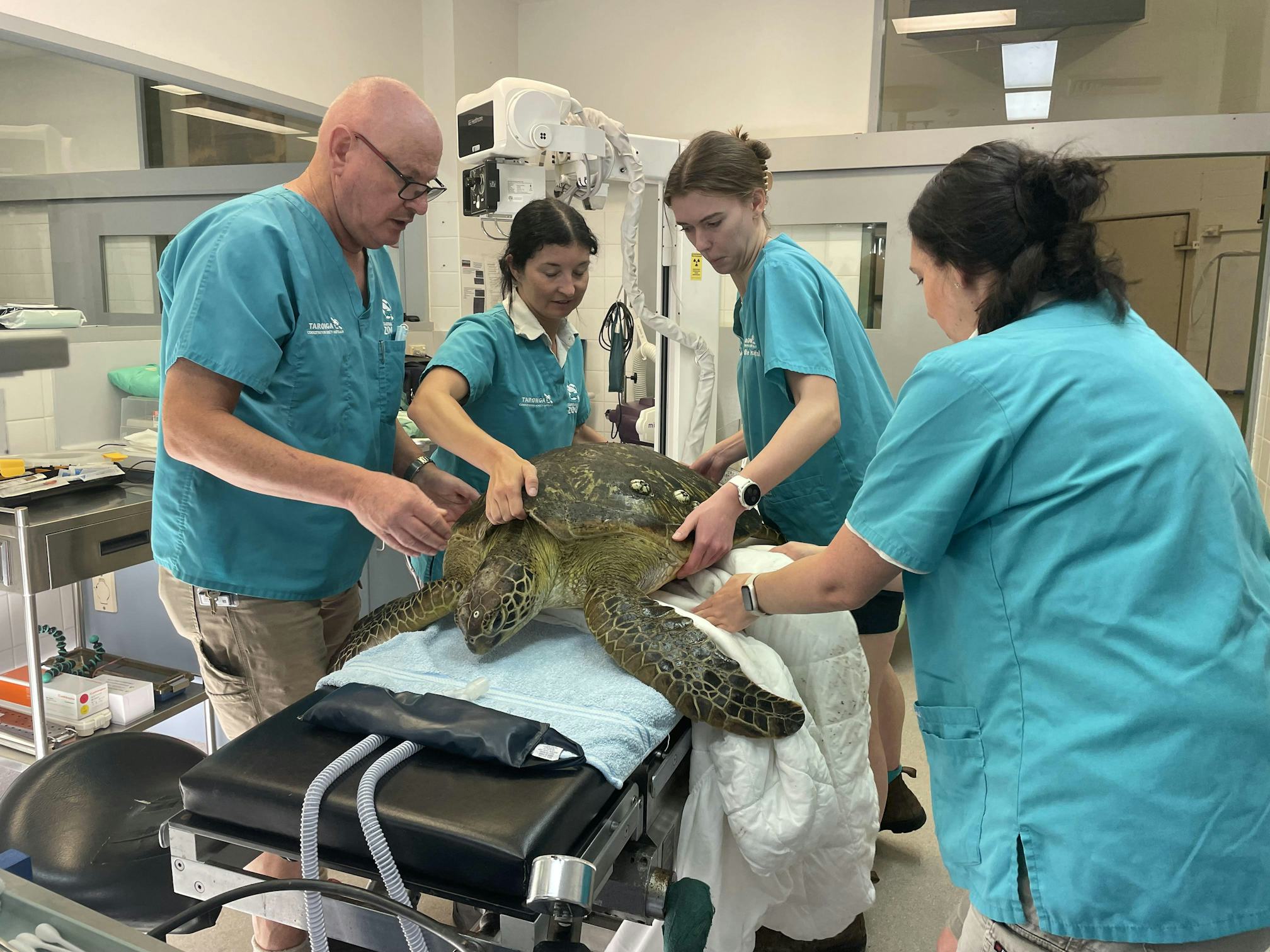The first turtle, a 50kg Green turtle, was discovered at Lake Macquarie and brought to Taronga Wildlife Hospital in March, 2023. During an ultrasound examination, it was revealed that the turtle had consumed seven fishing hooks, with the fishing line still attached, causing complications in her intestines.
Concerned about potential harm, the hospital staff immediately took the turtle, now known as Seven Hooks into surgery. Five hours later all hooks and entangled fishing line had been successfully removed.

Seven fishing hooks are successfully removed from a Green turtle. (Image source:Taronga Wildlife Hospital)
“Surgery on turtles is extremely difficult, as everything is encased within the shell, so the access is limited,” said Larry Vogelnest, Taronga Wildlife Hospital Senior Veterinarian.
“To be honest, I wasn’t sure if the turtle was going to survive. Incredibly, just a few days after the surgery, she was feeding well and then made a remarkable recovery,” he said.
An 80kg Green turtle was found soon after floating weakly near Anna Bay, close to Port Stephens. Known thereafter as Anna, the larger turtle had avoided any hooks and the internally entangled fishing line was safely removed without the need for surgery.
Prior to their triumphant return to the ocean, both rehabilitated turtles were equipped with satellite tracking devices, attached to their shells. This step allows researchers to monitor their movements for up to 12 months as part of Taronga's Marine Turtle Satellite Tracking Program, a pioneering research project aimed at gathering vital data on habitat utilisation within New South Wales.
Taronga researchers have already seen a divergence in the two turtles paths. Since being released Seven Hooks has visited locations around Rose Bay, Bondi, Tamarama, Cronulla and off the Royal National Park. While Anna, has visited Manly, Dee Why, Curl Curl, Pearl Beach and Fisherman’s Waters.
Released turtle tracks habitat (Image source : Taronga Wildlife Hospital)
Turtles, as carriers of essential nutrients across ecosystems, play a vital role in benefitting other species. However, these extraordinary creatures face mounting threats due to escalating levels of pollution in the heavily populated areas they visit. Taronga Wildlife Hospital in Sydney receives an average of 40 turtles every year that require specialist veterinary treatment and rehabilitation.
Taronga is committed to monitoring the survival and movements of the turtles they release. Findings from the tracking program will help to highlight critical habitat that may benefit from community education and conservation programs and identify opportunities to improve treatment, rehabilitations and release processes.
By sharing the knowledge gained through this initiative, other organisations providing veterinary services and community members can harness the lessons, leading to enhanced protection of the ecosystems that both sustain and are sustained by turtles.
Planet Ark does not take responsibility for the accuracy of the original information and encourages readers to check the references before using this information for their own purposes